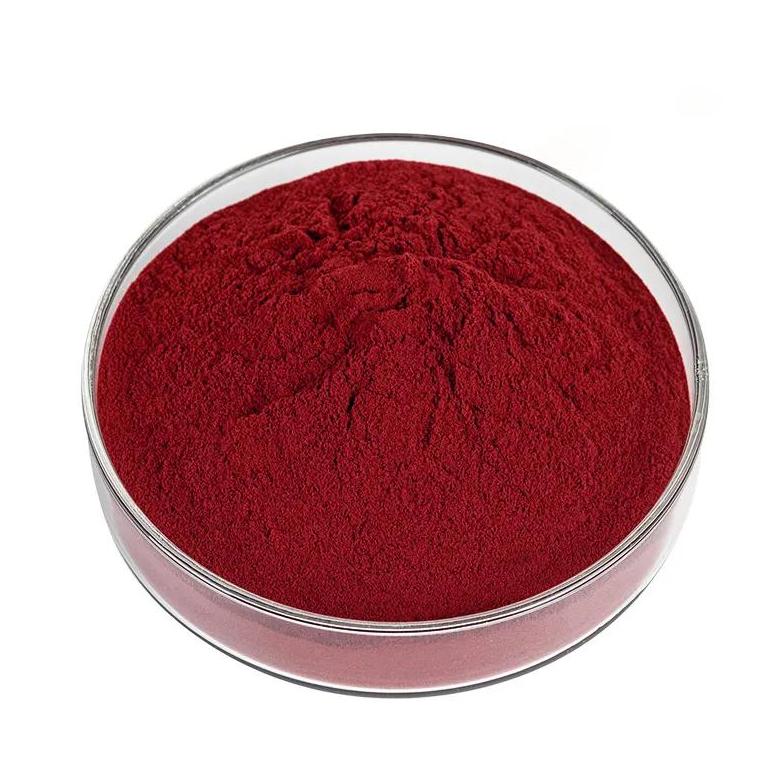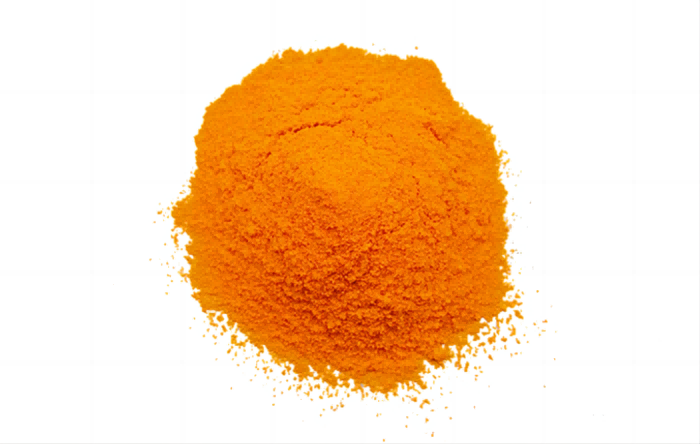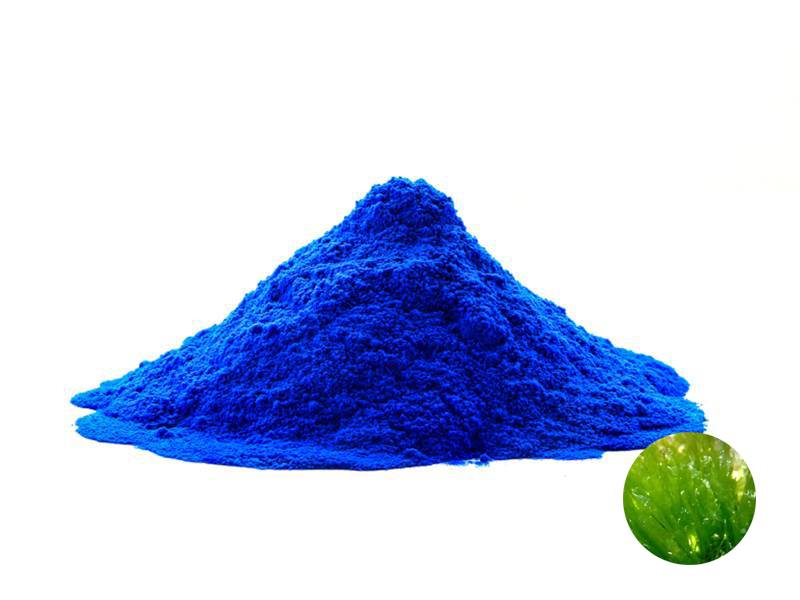Lycopene Powder
Product Name:Lycopene Powder
Specification:5%,10%,20%
Testing Method:HPLC
Appearance:Fine-Flowing Deep Red Powder
Pesticide Residue:Comply with (EC) No 396/2005 Standard
- Description
- Data Sheet
- Certificate
-
What is Lycopene Powder?
Lycopene is a lipophilic bright red carotenoid pigment found mainly in the ripe fruits of tomatoes in the Solanaceae family. Lycopene is a natural pigment contained in plants that is red in colour and can be used as a natural food additive. It is one of the strongest antioxidants found in nature so far, and its free radical scavenging effect is much higher than that of other carotenoids and vitamin E. Lycopene powder can effectively prevent and control various diseases caused by aging and immunity, and it has been widely used in the fields of food, health care products and so on.
Lycopene powder supplied by Green Spring Technology is mainly produced by microbial fermentation. The process technology is scientifically advanced, mature and reliable, making lycopene powder with high purity, no solvent residue, pesticide residue, green, safe, short production cycle, and low raw material cost.
Green Spring has been committed to providing customers with natural, safe, and organic plant extracts. We have a rigorous internal quality control process, strictly implement the quality management system, and organize production under ISO, HACCP, and other quality standards. All products are traceable, and each product from source to finished product has detailed testing, and production reports, to ensure that every link in the production process can be controlled and investigated. We have passed Halal, Kosher, COSMOS, BRC, IFS, FDA, ISO, and many other certifications. We can provide authoritative third-party test reports.
Specification:
Product Name Lycopene Powder
CAS No.
502-65-8
Assay
5%,10%,20%
Testing Method
HPLC
Appearance
Fine-Flowing Deep Red Powder
Pesticide Residue
Comply with (EC) No 396/2005 Standard
Regulation:
It conforms to EU regulations.
Looking for a Quotation?Benefits:
Antioxidant Properties
Lycopene can burst mono-linear oxygen or capture peroxyl radicals physically and chemically. Single-linear oxygen is a highly reactive oxygen radical with cytotoxic effects, to which the cell membrane, mitochondria, and other parts of the cell are the most sensitive, and can interact with a variety of biological macromolecules in the cell, causing damage to the cell membrane system by binding with the molecules; lycopene is able to accept the energy of different electronically excited states, absorbing light energy and through the process of single-linear - single-linear energy transfer to make the energy of single-linear oxygen to lycopene. The significance of monolinear oxygen is transferred to lycopene, generating basal oxygen molecules and triplet lycopene molecules, which are regenerated through a series of spinning and vibrational reactions with solvents, and in the process emit energy.
Improves Immunity
Lycopene, as an antioxidant, significantly reduces oxidative damage to lymphocyte DNA caused by peroxidation in the body. Monolinear oxygen and free radicals are the most important causes of human aging and are also related to the body's immune ability. Lycopene protects phagocytes from their own oxidative damage, promotes the proliferation of T and B lymphocytes, stimulates the function of effector T-cells, enhances the ability of macrophages and T-cells to kill tumor cells, reduces oxidative damage to lymphocyte DNA, as well as promotes the production of certain interleukins. Experiments have shown that DNA damage can be reduced when lymphocytes are treated with hydrogen peroxide in vitro in people who ingest tomatoes.
Protects the Skin
The antioxidant effect of lycopene can effectively inhibit oxidative damage to lipids, proteins, enzymes and DNA. For example, lycopene protects the skin from ultraviolet light damage. When the skin is exposed to ultraviolet light, the lycopene in the skin can preferentially combine with free radicals, thus protecting the tissues and cells in the skin from damage due to oxidation.
Cardiovascular Protection
Some researchers pointed out that lycopene can protect LDL from oxidative damage to regulate the metabolism of cholesterol, and thus may prevent the occurrence of cardiovascular disease. Dutch scholars of myocardial infarction patients in subcutaneous fat carotenoid content measurement found that the patient's lycopene content is lower than that of healthy people, and β-carotene content than the normal human body is also significantly lower, indicating that these kinds of carotenoids are closely related to the occurrence of the disease.
Regulation of Cell Growth and Metabolism
Lycopene has been shown to inhibit tumor growth by inducing intercellular junctions, enhancing GJIC between normal cells, controlling cell growth, and inducing cell differentiation.
Applications:
In the Food and Beverage Field:
In the food and beverage industry, lycopene has been approved as a "novel food" in Europe and GRAS (usually considered safe) in the United States, with non-alcoholic beverages being the most popular. According to Global New Products Database (GNPD) data, there are 20 new products that have added Lycopene: 7 in the fields of bread, breakfast cereal, etc; 7 species in the field of processed meat, fish, and eggs; 7 types in the field of dairy products; 6 types in the field of chocolate and candy; 5 types of sauces and seasonings; There are 5 types of desserts and ice cream. Chinese patent 200810017681 introduces an application method of lycopene in dairy products, which not only maintains the nutrition of dairy products but also enriches their health functions.
For Health Products:
Global New Products Database (GNPD) data shows that there are 177 new products containing lycopene powder supplements worldwide. Lycopene powder is mainly used in the field of healthcare products for antioxidants, delaying aging, enhancing immunity, regulating blood lipids and so on.
In Cosmetics:
Data from the Global New Products Database (GNPD) show that there are 81 new products containing lycopene in skin care and 51 in color cosmetics. Typical products such as lycopene moisturizing lotion have whitening and anti-aging effects. Domestic products include Lycopene Whitening Essence Applicator, which has antioxidant, anti-allergy, and whitening effects.
-
Download
Lycopene Powder COA


 English
English French
French Spanish
Spanish Russian
Russian Korean
Korean Japanese
Japanese










